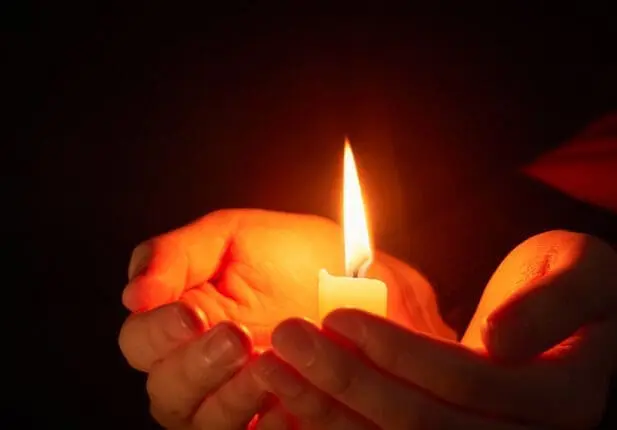Quandary: I’ve heard a lot of grief specialists talking about helping clients finding meaning after loss. But sometimes loss feels meaningless, like all of these COVID deaths, and I’m not sure what to think or feel about it. What’s helped other therapists? And how do I work with my clients around this?
1) Look for Little Treasures
Over the last two years, the COVID-19 pandemic has kept death in the public eye. It’s shown us much more publicly how people respond to death and grieve.
When a client is struggling with the death of a loved one, dealing with the shock of the death is often the first struggle. As therapists, it’s critical that we accept the client’s feelings of sadness, frustration, guilt, and anger.
If clients find meaning in a loved one’s passing, it can happen at any point during the grieving process. Sometimes the timing is based on religious or spiritual traditions. But for others, being told by people around them that “God took them to a better place” may exacerbate feelings of anger or sorrow. Although there’s no one-size-fits-all approach to dealing with grief, I personally believe it’s important to explore the client’s experience and beliefs, even if they’re not religious or spiritual.
I’ve also found it helpful to focus on the reality of the death, including the cause of death and the real consequences for people left behind. Some clients focus on this from the start. Others must work through pain and numbness before funeral arrangements can be made and family and friends are attended to.
More generally, when working with grieving clients, I utilize deep listening and provide exercises to help provide structure and support between sessions. I’ve found that practices that engage the client’s senses can be helpful when their grief becomes overwhelming. Sometimes it’s smelling the loved one’s favorite perfume or cologne, or burning a scented candle that helps them relax. You can also use art, music, therapeutic journaling, and meditation. I’ve found that using deep breathing exercises along with relaxing music helps too.
Ultimately, for our grieving clients, the depth of their grief corresponds with the meaning the loved one had in their life. Whether it’s through photo albums, scrapbooks, letter collages, or repeating the loved one’s favorite phrases, we can help our grieving clients find little treasures that help them remember and honor the people they’ve lost.
Janice Sandefur, LCSW, ACSW, MSW
Ocala, FL
2) Giving Shape to Grief
I’m a grief therapist. In my work, I don’t talk to clients about resilience, strength, or finding themselves on the other side of loss. I don’t help them “find the good in the dark.” I don’t remind them of ways to hold on to those who are lost or connect them to others who’ve lost loved ones. I don’t work to help them find meaning. Not at first.
Here’s why: focusing on those things, although they can be helpful, takes away from the biggest piece of grief work: allowing grieving. Just allowing. I think that, as clinicians, we rush too fast to make grief make sense, to help our clients find meaning. Sometimes, meaning just can’t be found. And guess what? That’s okay. It’s okay to mourn, to rage, to weep, to speak, to shake, and to realize that there isn’t always meaning or closure. Wounds can remain, but over time, their edges soften. Our overwhelming desires to push away sadness deprives us of the importance of sitting with it, allowing it to be felt before we even try to understand it.
I tell my clients to allow the sadness, to honor it, to let it form and be. To find the breath attached to their grief, feel the inhale and the exhale, and allow it to be. I give them permission to speak about it, to slow down so it can be held. I tell clients to find the color of their grief, its smell, its sound. Through this, our clients give themselves the biggest piece of grief work: permission to allow it to exist.
Amy Ebeid, PsyD
Fairfax, VA
3) Reconnecting with What Grief Obstructed
Helping clients find meaning and purpose after loss is a central part of a grief counselor’s role. My clients often point out the meaninglessness of loss, but finding meaning, a bright side, or beloved memories—often suggested by well-meaning families, friends, and coworkers—is what’s required to heal and move beyond grief. Still, this often leaves the griever feeling unacknowledged, as if those around them don’t understand or care about their experience.
As a grief counselor, I acknowledge my clients’ pain and allow space for it. But I also help them focus on other aspects of their life that they can find meaning within, which allows them to reconnect with the emotions grief obstructs. I might lead clients in guided mindful reflection, journaling, or other reflective exercises to identify where their values lie and help them begin to envision what a life of meaning and purpose after a loss might look like. Are there key people, relationships, forms of expression, places, or meaningful work they can connect with? If and when they do connect with them, we explore what arises.
This approach isn’t meant to distract from loss or leave grief unexplored. Rather, the goal is to build on what remains despite loss. I always listen for, acknowledge, and help clients explore “aha!” moments, even amid loss.
I almost always find that grief catalyzes a reordering of priorities. Sometimes it deepens our present commitments, and other times new perspectives emerge. The loss of identity that follows grief can feel like another loss, another unmooring from the familiar. But when we work with our clients to listen for, honor, and recognize these shifts, doorways to healing and meaningful transformation can happen.
Alex Zima, MA, LCMHCA
Raleigh, NC
4) Asking the Big Questions
Finding meaning in loss is one of the most important things a therapist can help a client do. Life is a mystery. One minute we’re safely ensconced in the womb, the next we’re catapulted into this world. Our awareness of ourselves and the world grows as we move through life, encountering loss along the way. Young adult fantasies shatter as we bump into the realities of adult life. Old age brings physical and mental decline. Day changes to night. Loss challenges and stretches us to understand and find meaning. And if we’re open to loss’s lessons, they can facilitate new growth and new ways of understanding life.
We live in a death-denying culture that tends to minimize loss. But given the prevalence of COVID deaths, it’s hard for people to deny it any longer. We’re more aware now that death and loss can happen at any age, at any time. Loss might trigger many things in a person other than grief, such as anxiety about the future. It’s one reason grief work is so hard. But the first step for any therapist working with grief is to simply be with the client, listen to their pain, and offer support.
As therapy progresses, I want to know the ways my client has dealt with loss in the past. What’s helped them? I also want to know what my client believes about life, loss, and death—more the existential questions of “Why do you think you’re here?” and “What’s the meaning of life for you?” My goal is to help them find their own meaning in loss. Do they believe that life ends in death? If so, then how can they make their lives matter while alive? If they have religious beliefs, how can they help them find solace?
Sometimes loss seems meaningless until we have a larger context in which to view it. Can the client trust that as they seek meaning, it will eventually emerge? I think that seeking to answer existential questions provides grieving clients a way to make sense of their life amongst the bigger picture.
Jan Canniff, LMHC
Friday Harbor, WA
***
Photo © iStock/Wheatfield
Psychotherapy Networker
The editorial staff of Psychotherapy Networker comprises clinicians, journalists, and writers with a passion for creating a community where therapists gather and grow. Learn more on our About Us page.












